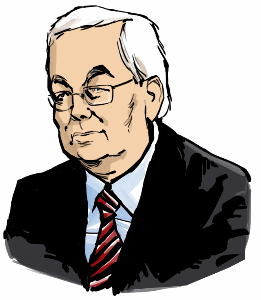© Gunnar Tómasson
2 January 2016
I. Take my Milke for Gall, you murth’ring Ministers
(Macbeth, Act I, Sc. v, First Folio)
1506977
18564 = Enter Macbeths Wife alone with a Letter.
Lady:
13595 = They met me in the day of successe:
16978 = and I haue learn’d by the perfect’st report,
20101 = they haue more in them, then mortall knowledge.
24166 = When I burnt in desire to question them further,
21903 = they made themselues Ayre, into which they vanish’d.
31983 = Whiles I stood rapt in the wonder of it, came Missiues from the King,
13628 = who all-hail’d me Thane of Cawdor,
27278 = by which Title before, these weyward Sisters saluted me,
15980 = and referr’d me to the comming on of time,
12407 = with haile King that shalt be.
17791 = This haue I thought good to deliuer thee
14611 = (my dearest Partner of Greatnesse)
23810 = that thou might’st not loose the dues of reioycing
23299 = by being ignorant of what Greatnesse is promis’d thee.
13486 = Lay it to thy heart, and farewell.
16466 = Glamys thou art, and Cawdor, and shalt be
22283 = What thou art promis’d: yet doe I feare thy Nature,
19428 = It is too full o’th’ Milke of humane kindnesse,
23346 = To catch the neerest way. Thou would’st be great,
21998 = Art not without Ambition, but without
28340 = The illnesse should attend it. What thou would’st highly,
26030 = That would’st thou holily: would’st not play false,
17389 = And yet would’st wrongly winne.
20855 = Thould’st haue, great Glamys, that which cryes,
17067 = Thus thou must doe, if thou haue it;
19871 = And that which rather thou do’st feare to doe,
21298 = Then wishest should be vndone. High thee hither,
18055 = That I may powre my Spirit in thine Eare,
19804 = And chastise with the valour of my Tongue
18353 = All that impeides thee from the Golden Round,
17258 = Which Fate and Metaphysicall ayde doth seeme
21791 = To haue thee crown’d withall. Enter Messenger.
11234 = What is your tidings?
Messenger:
11924 = The King comes here to Night.
Lady:
9817 = Thou’rt mad to say it.
22005 = Is not thy Master with him? who, wer’t so,
17114 = Would haue inform’d for preparation.
Messenger:
21224 = So please you, it is true: our Thane is comming:
15321 = One of my fellowes had the speed of him;
18356 = Who almost dead for breath; had scarcely more
14141 = Then would make vp his Message.
Lady:
6534 = Giue him tending,
17272 = He brings great newes. Exit Messenger.
12026 = The Rauen himselfe is hoarse
17399 = That croakes the fatall entrance of Duncan
18666 = Vnder my Battlements. Come you Spirits,
21007 = That tend on mortall thoughts, vnsex me here,
21244 = And fill me from the Crowne to the Toe, top-full
16036 = Of direst Crueltie: make thick my blood,
19132 = Stop vp th’accesse and passage to Remorse,
22019 = That no compunctious visitings of Nature
19375 = Shake my fell purpose, nor keepe peace betweene
19235 = Th’effect and hit. Come to my Womans Brests,
22337 = And take my Milke for Gall, you murth’ring Ministers,
21318 = Where-euer, in your sightlesse substances,
22014 = You wait on Natures Mischiefe. Come thick Night,
16671 = And pall thee in the dunnest smoake of Hell,
19788 = That my keene Knife see not the Wound it makes,
19610 = Nor Heaven peepe through the Blanket of the darke,
6808 = To cry hold, hold.
5476 = Enter Macbeth.
14364 = Great Glamys, worthy Cawdor,
16328 = Greater then both, by the all-haile hereafter,
17688 = Thy Letters have transported me beyond
17225 = This ignorant present, and I feele now
12581 = The future in the instant.
Macbeth:
6702 = My dearest Loue,
11463 = Duncan comes here to Night.
Lady:
7897 = And when goes hence?
Macbeth:
14374 = To morrow, as he purposes.
Lady:
3455 = O neuer,
14613 = Shall Sunne that Morrow see,
16392 = Your Face, my Thane, is as a Booke, where men
18832 = May reade strange matters, so beguile the time.
19046 = Looke like the time, beare welcome to your Eye,
24801 = Your Hand, your Tongue: looke like th’innocent flower,
19229 = But be the Serpent vnder’t. He that’s comming,
17445 = Must be prouided for; and you shall put
21301 = This Nights great Businesse into my dispatch,
20661 = Which shall to all our Nights, and Dayes to come,
19615 = Giue solely soueraigne sway, and Masterdome.
Macbeth:
12417 : We will speake further.
Lady:
8822 = Onely looke vp cleare:
13685 = To alter fauor, euer is to feare:
13726 = Leaue all the rest to me. Exeunt.
1506977
II. Francis Bacon’s Prophecy: At the Coming of Christ
(Of Truth, 1625)
114285
22422 = Surely the Wickednesse of Falshood, and Breach of Faith,
17402 = cannot possibly be so highly expressed,
13942 = as in that it shall be the last Peale,
24494 = to call the Iudgements of God, vpon the Generations of Men,
20293 = It being foretold, that when Christ commeth,
15732 = He shall not finde faith vpon the earth.
114285
III. Eternall Reader, You haue heere a New play¹
(1609 Preface, Troilus and Cressida)
948513
IV. The Last Peal
(Contemporary history)
438097
On 26 February 2014, I posted the following message to [friends] – expressly for future reference:
While in Iceland last August, I met with Pétur Halldórsson over coffee at the Cafe Milano in Reykjavík.
We discussed matters of mutual interest, including what my Saga Cipher work might possibly “mean“.
I took a napkin and, for emphasis, wrote down the number 438097, which I have posted [previously].
This is the final cumulative sum of a very large number of names of individuals, institutions, dates and events, including two famous murder cases, a sex scandal in high places, and presumptive lies told in connection therewith.
As I recall it, I first put this number on record in a message [to same friends], explaining that I would not be providing any further details on it. That remains my position for the time being.
I told Pétur (what I had long surmised) that I believed that this number was associated with a watershed event in human history whose final phase was upon our world.
An earth-shaking culmination of human and spiritual evolution.
***
Lady Macbeth: Give Me Your Hand
In ancient creation myth, as noted by Einar Pálsson in Baksvið Njálu/Background to Njála (1969), the World is created through strife. The strife is variously depicted as Two Brothers (Cain and Abel), Male and Female, Darkness and Light, Morning and Evening and, Einar writes: “Sometimes the strife is shown as the two hands” (p. 94). One hand is Male, the other is Female and: “When hand lets go of hand the Wolf [Fenrisúlfur, son of Loki] becomes unbound. Then all hell breaks loose on Earth.” (p. 132).
In Lady Macbeth’s exit speech – “To bed, to bed: there’s knocking at the gate: Come, come, come, come, giue me your hand: What’s done, cannot be vndone. To bed, to bed, to bed.” – there are three distinct allusions to imminent re-union of Two Hands, each of with is also denoted by the number Five as in 5 x bed, and 5 and 4, as in 4 x come, are also Male and Female numbers, respectively.
“Will she go now to bed,” asks Doctor of Physicke – ONE as Two Hands re-united. “Directly,” replies Gentlewoman – the Cipher Value of her reply is 4000, symbol of Cosmic Creative Power alluded to earlier in the LIGHT which was always with Lady Macbeth on her “command”.
Lady Macbeth’s role in Shakespeare’s play is that of “the Genius of Antiquity” – alias Scialetheia or Shadow of Truth – “come to complain of our variety of fickle fashions,” in the closing words of a Shakespearean poem with that title.
The “great theme [of Troilus and Cressida] is infidelity…” – FAITH not found on Earth– writes Joyce Carol Oates.
***
V. Lady Macbeth: Sleep-walking Light of the World
Tough-love Faith Teacher
6082
4000 = Flaming Sword
2082 = Faith
6082
II + III + IV + V = 114285 + 948513 + 438097 + 6082 = 1506977
¹ See Saga Cipher – Holy Blood & Holy Grail – Da Vinci Code, 1. January 2016.
***
Calculator for converting letters to cipher values is at:
http://www.light-of-truth.com/ciphersaga.htm

 Gunnar Tómasson
Gunnar Tómasson